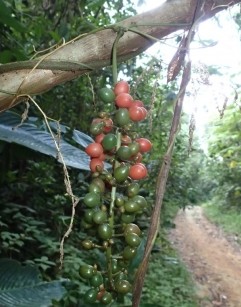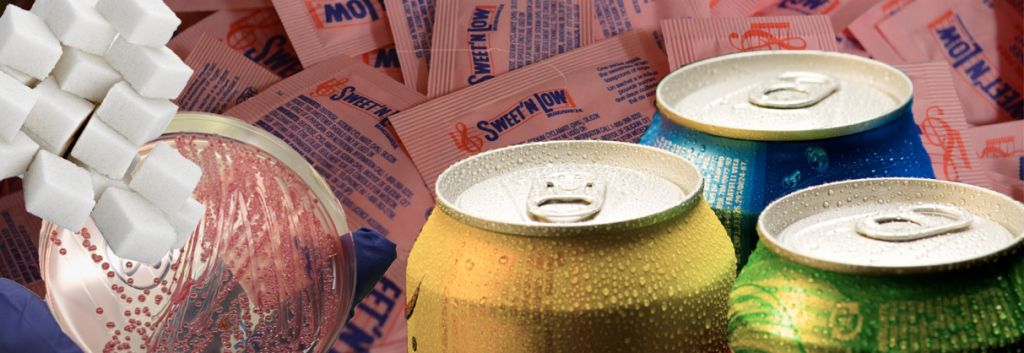Monellin chain B is an artificial sweetener initially mistaken for a carbohydrate. It has since been established to actually be a natural protein based sweetner which is fairly unstable. iSweetch from the University of Naples has used E. Coli to engineer a more stable version of the protein to revolutionize the artificial sweetner industry.
 Monellin is a revolutionary protein-based artificial sweetener (yes, a protein!) with very promising results; in fact 1 gram corresponds to the same sweetness provided by 3 kg of common sugar. The idea comes from a new born start-up iSweetch from the University of Naples. Their Monellin product was presented at the BioInItaly Investment Forum & Intesa San Paolo of Milan Startup Initiative, an event organized with the aim of promoting relevant biotech Italian start-ups.
Monellin is a revolutionary protein-based artificial sweetener (yes, a protein!) with very promising results; in fact 1 gram corresponds to the same sweetness provided by 3 kg of common sugar. The idea comes from a new born start-up iSweetch from the University of Naples. Their Monellin product was presented at the BioInItaly Investment Forum & Intesa San Paolo of Milan Startup Initiative, an event organized with the aim of promoting relevant biotech Italian start-ups.

Monellin is a proteinaceous derivative of the tropical plant Dioscoreophyllum cumminsii (the Serendipity Berry) from the lush region spanning from Sierra Leone to Eritrea (Africa). Although it was discovered in 1969, it was classified and named so after the Monell Chemical Senses Center in Philadelphia (Penn, US) in 1972.
Natural Monellin has not yet been mass marketed to the food industry, primarily due to the challenge of large-scale purification of the protein which is relatively sensitive to heat or acid treatment. Furthermore, the Serendipity plant is hard to grow and the sweet content is based on its tri-dimensional structure that can be broken down at higher temperatures, making its stability as a food additive questionable. iSweetch has been able to overcome these limits modifying the protein structure.
The ‘mutant’ Monellin protein was engineered for production in E. coli and purified by solid-phase extraction. The extract was tested by a select panel of 14 assessors to evaluate the taste. This study confirmed that the modified protein is a natural high-potency sweetener, which tasted about 3,000 times sweeter than sucrose (tested using the same tasting-board).
However, because Monellin is an engineered protein, production costs of this sweetener are higher than refinery processes for natural sugars (i.e. sucrose). Despite this, the possibility of using a lower amount of sweetner to achieve the same effect in terms of sweetness, would naturally reduce the over-all cost. Indeed, Monellin isn’t the first artificial sweetner to be produced by E.coli (check out the controversial mass production of Aspartame) so we know it can be done.

There is also a particular demand for a carbohydrate alternative to common artificial sweetners (e.g. Aspartame, Sucralose etc.) due to very controversial (but comprehensive) studies recently implicating these sweetners in insulin intolerance via changes in the gut’s microbiome.
iSweetch could therefore radically change the sweetener market by helping beat the excessive sugar consumption (particularly as a carbohydrate alternative for diabetics) whilst promoting a cost-effective dietary alternative to regular sugar. Sweet!





